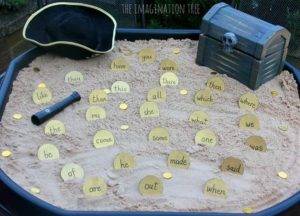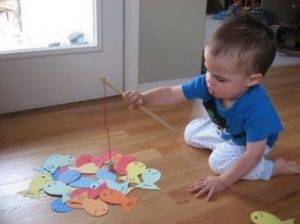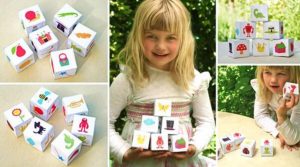
Do you remember how, as a kid, playing games was the best part of your day? It wasn’t just about fun; we were learning too – making friends, solving puzzles, and sometimes, without even knowing it, picking up new words and stories. Now, as adults, we see our kids or students glued to screens or struggling with reading, and we wonder, “How can we make reading as exciting as games?”
That’s exactly what we’re going to explore today! Reading doesn’t have to be a chore for kids, and teaching it isn’t a headache for you. Through reading games, we can help kids dive into the world of letters, words, and stories with the same excitement they show when playing their favorite video game or running around the playground.
In this blog, we’ve handpicked 10 reading games that are perfect for helping children develop their literacy skills. These aren’t just educational but super fun, too.
The Role of Games in Learning
Have you ever wondered why kids love games so much? It’s not just because games are fun. There’s a whole science behind it! This is where “game-based learning” comes into the picture. It’s a way of learning where games help kids understand new concepts and skills – and it’s pretty powerful.
Let’s break it down. When kids play games, they’re not just passing time. They’re actively thinking, making decisions, solving problems, and, most importantly, learning from their mistakes. This kind of learning sticks because it’s hands-on and interactive. It’s different from just listening to someone talk or trying to memorize stuff from books. Games can teach reading and literacy skills in ways that kids don’t just learn but actually enjoy. Here’s how:
- Engagement: Like video games keep kids glued to the screen; reading games can keep them hooked on learning new words and stories. They won’t even realize they’re learning because they’re too busy having fun.
- Motivation: Rewards in games (like points, levels, or even simple praise) can make kids want to keep going. They feel proud when they win or score points, which makes them want to read more and improve.
- Reinforcement: Games often have repetitive elements, which is great for learning. When kids play reading games, they repeat certain words, sounds, and patterns, which helps cement this knowledge in their memory.
By using games to teach reading, we’re speaking kids’ language. We’re making learning a joyful, exciting journey rather than a tedious task. And the best part? They develop a love for reading that can last a lifetime.
Criteria for Selecting Reading Games
When looking for the perfect reading games for kids, it’s like picking the right toy for a birthday gift. You want it to be fun but also good for them. Here are some key things to keep in mind when choosing the best reading games:
- Age-appropriateness: Choose games that match the child’s age and reading level. Younger kids need simpler, more visual games, while older kids can handle more complex text and concepts.
- Educational Value: Look for games that boost vocabulary, improve reading comprehension, and teach phonics. The game should help kids learn new reading skills or practice what they already know.
- Engagement Factor: The game must be fun and interesting. If kids enjoy the game, they’re more likely to stay engaged and learn.
- Accessibility and Resources: Ensure the game is easy to set up and play. It shouldn’t require lots of extra materials or complicated instructions.
1. Explore Words with Final Digraphs – CK by SplashLearn
This interactive online game from SplashLearn focuses on teaching kids about final digraphs, specifically the “ck” sound. As one of the engaging online ELA games for kids, it combines colorful animations and fun activities to help children understand how the “ck” sound works in different words. It’s an excellent tool for reinforcing phonics skills in a playful, digital format.
Targeted Skills: Understanding of final digraphs in words, phonics skills, and word recognition.
Age Group: 5-8 years.

2. Sight Word Treasure Hunt
Turn learning sight words into an exciting treasure hunt. Write common sight words on cards and hide them around your home or classroom. Kids then go on a hunt, finding and reading these words. It’s like a little adventure in every word they find!
Targeted Skills: Recognizing and reading common sight words.
Age Group: 5-7 years
3. Storytelling Dice Game
This game uses dice with pictures or words on each side. Kids roll the dice and then weave a story based on the rolled images or words. It’s a fun and imaginative way to create stories and can be played individually or in groups.
Targeted Skills: Creative thinking, vocabulary development, sentence structure.
Age Group: 6-8 years
4. Alphabet Fishing

Create a fishing game where each ‘fish’ has a letter of the alphabet. Using a makeshift rod, kids catch the fish and then say the letter sound or a word that starts with that letter. It’s a playful way to learn while they ‘fish’ for letters.
Targeted Skills: Letter recognition, phonemic awareness.
Age Group: 3-5 years
5. Rhyming Bingo
In this twist on traditional Bingo, the board is filled with words instead of numbers. When a word is called out, kids have to find a rhyming word on their board. It’s a fun way to play with sounds and words, and kids love the excitement of yelling, “Bingo!”
Targeted Skills: Rhyming, listening skills, word recognition.
Age Group: 4-6 years
6. Word Building Scrabble
This game is a twist on the classic Scrabble, tailored for younger learners. Children use letter tiles to form words on a board, which helps them understand word structures and spelling. It’s a fantastic way for kids to play with words and challenge their minds.
Targeted Skills: Vocabulary building, spelling, and word formation skills.
Age Group: 7-10 years
7. Reading Memory Match
In this game, kids match cards with words to their corresponding pictures. It’s not only a memory test but also helps reinforce word recognition and reading skills. The game is simple to set up and incredibly engaging for young learners.
Targeted Skills: Word recognition, memory strengthening, and vocabulary development.
Age Group: 5-8 years
8. Interactive Storybook Apps
These apps bring stories to life with narration, animation, and interactive features. Kids can engage with the story by tapping on words to hear them read aloud, playing mini-games, or even recording their own voices. This modern approach to reading makes it dynamic and captivating.
Targeted Skills: Listening skills, pronunciation, and engagement in reading.
Age Group: 4-8 years
9. Puzzle Sentence Maker
Using word cards, children can arrange and rearrange words to form sentences, making it a puzzle-like experience. This game encourages them to think about grammar and sentence structure creatively and playfully, enhancing their language skills.
Targeted Skills: Grammar, sentence construction, and critical thinking.
Age Group: 6-9 years
10. Phonics Hopscotch
Transform the classic game of hopscotch into a learning adventure. Each square features a letter or phonics sound. As kids hop from one square to another, they shout out the letter or sound. It’s a great way to combine physical activity with learning.
Targeted Skills: Recognizing letters and learning phonics (sounds of letters and letter combinations).
Age Group: 4-6 years
Conclusion
And there you have it – a list of fun and educational reading games, perfect for helping your kids or students fall in love with reading. Remember, every child learns differently, and these games are here to make that learning journey enjoyable, interactive, and effective.
Whether hopping around with Phonics Hopscotch, going on a word hunt with Sight Word Treasure Hunt, or playing online phonics games, each game offers a unique way to build literacy skills. By incorporating these games into your teaching or parenting toolkit, you’re not just teaching kids to read; you’re opening up a world of imagination, creativity, and a lifelong love for words.
So, let’s make reading fun! Try out these reading games, mix and match them, and watch as the children in your life discover the joy of reading.
===================================================================
 Author Bio: Amy Gill: – Amy Gill is a Contributing Editor at SplashLearn. As a former teacher, she likes to write about education reforms, edtech and how to make learning more fun for children.
Author Bio: Amy Gill: – Amy Gill is a Contributing Editor at SplashLearn. As a former teacher, she likes to write about education reforms, edtech and how to make learning more fun for children.












What a fantastic overview of how reading games can transform literacy learning! I love the idea of making reading as engaging as playing games, as it captures children’s attention. Recently, I found some creative inspiration at crazy cattle 3d that reminded me of the fun ways we can incorporate play into education. These games are a wonderful way to foster a love for reading in kids!
I am very interested in trying these different options with my students. I particularly favor the word building scramble.